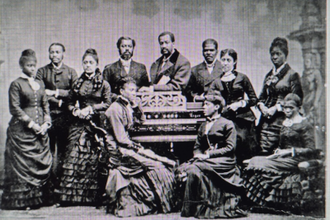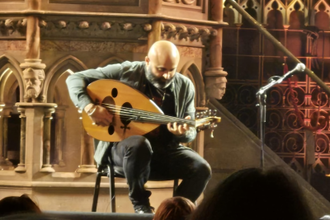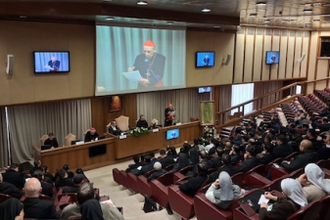Brighton Rock on Stage

Two years after her excellent Brideshead Revisited adaptation (read my review on this site), Bryony Lavery has adapted Graham Greene's Brighton Rock for the stage and has scored another palpable hit in a triumphant ensemble production sensitively directed by Esther Richardson.
Whereas Waugh's Brideshead focuses on the aristocratic and upper echelons of society, Brighton Rock is a novel which focuses on vicious gangsters and the lower depths 'hoi polloi' - a bracing and salty foil to the former book's rarefied polish. Yet a crucial central theme links both the books, and that is the theme of grace, and the fate of one's immortal soul.
In Brideshead, the scandalous Lord Marchmain is reconciled with the Church on his deathbed as he makes a moving act of contrition and faith.
But the salvation of Pinkie Brown, the vicious seventeen year-old gangster and anti-hero of Greene's novel, looks like a lost cause to human eyes. The cruel thug has murdered twice and deceitfully married sixteen-year-old Rose whom he despises as he desperately tries to cover his bloody tracks. Finally, he is 'hoist with his own petard', sprayed by the vitriol he carries to terrorise his victims, which causes him to fall, in agony, to his death from a clifftop, drowning in the waves below. Pinkie seems to have cast himself adrift from the anchor of God's grace.
Pinkie, like Rose a 'Roman', betrays a conscience-pricked fear of damnation even as he opts for evil. Yet Greene himself had 'small belief in the doctrine of eternal punishment' and lays biographical clues for us as to Pinkie's perversion. The 'Boy', 'with a face of starved intensity', had a childhood starved of love, and hates being humiliated for his youthful years. He is cut up and shamed by the thugs of the rival kingpin Colleoni.
Once a choirboy who entertained thoughts of the priesthood, he chants with Rose: 'agnus dei qui tollis peccata mundi, ... dona nobis pacem' and recalls the renaissance poet William Camden's resounding comfort that: 'Between the stirrup and the ground, he mercy sought and mercy found' - though it is the innocent and devoted Rose who supplies the word forgotten word 'mercy'.
In this production, Jacob James Beswick as a would-be fastidious Pinkie is spare, wired and haunted; all angular movements.
Big-hearted and flesh-loving, interventionist Ida, who, it is said, represents justice-seeking secular morality, is played with a lovely warmth, and a sweet singing voice, by Gloria Onitiri. In her pursuit of the murderous Pinkie and her unwitting saving of Rose from a desperate suicide, she is, it seems to me, an instrument of God's grace. Her chase and Pinkie's flight call to mind a similar dynamic alive in Francis Thompson's 'Hound of Heaven':
I fled Him, down the nights and down the days;
I fled Him, down the arches of the years;
I fled Him, down the labyrinthine ways
Of my own mind; and in the mist of tears
I hid from Him. …
…
Ah, fondest, blindest, weakest,
I am He Whom thou seekest!
Thou dravest love from me, who dravest Me.
Pinkie's heart is restless, you might say, because it will not rest in God. He is the pursued h(e)art, yearning for the running streams of God's grace and yearning for peace: 'dona nobis pacem'.
Ida also performs a narrative function in this production. Very much the polar opposite and antagonist of Pinkie, this grounded 'woman' enjoys sex, porter and a good time.
Special mention must be given to the ensemble scenes in which tableaux were set, poses struck, and moods created. The versatile ensemble were dubbed 'dark angels' by the company as they constantly shifted between parts. The downlighting on the behatted, trilbied faces of the mobsters made me think of the nocturnal painterly light of Georges de la Tour. Bravo, too, to the shady lawyer, the sympa priest and the 'polonies' on the pier. This pejorative word for women, along with the description of Ida as a 'buer' - a promiscuous woman - are examples of the lovely peppering of the 30s slang Greene used in the novel. Misogyny and misanthropy are rampant in the toxic masculinity of the gangs.
Live Music, dance, and singing all enrich the atmosphere and the energy; and there is very inventive staging on different levels. Simple poles, gripped by fired-up race-goers, transport us to the side of tracks.
A superb evening at the theatre, leaving us to ponder 'the … appalling … strangeness of the mercy of God.'
Brighton Rock continues to tour until late May.
Visit www.Pilot-Theatre.com for tour dates and venues.
Dr Philip Crispin is a Lecturer in Drama at the University of Hull


















